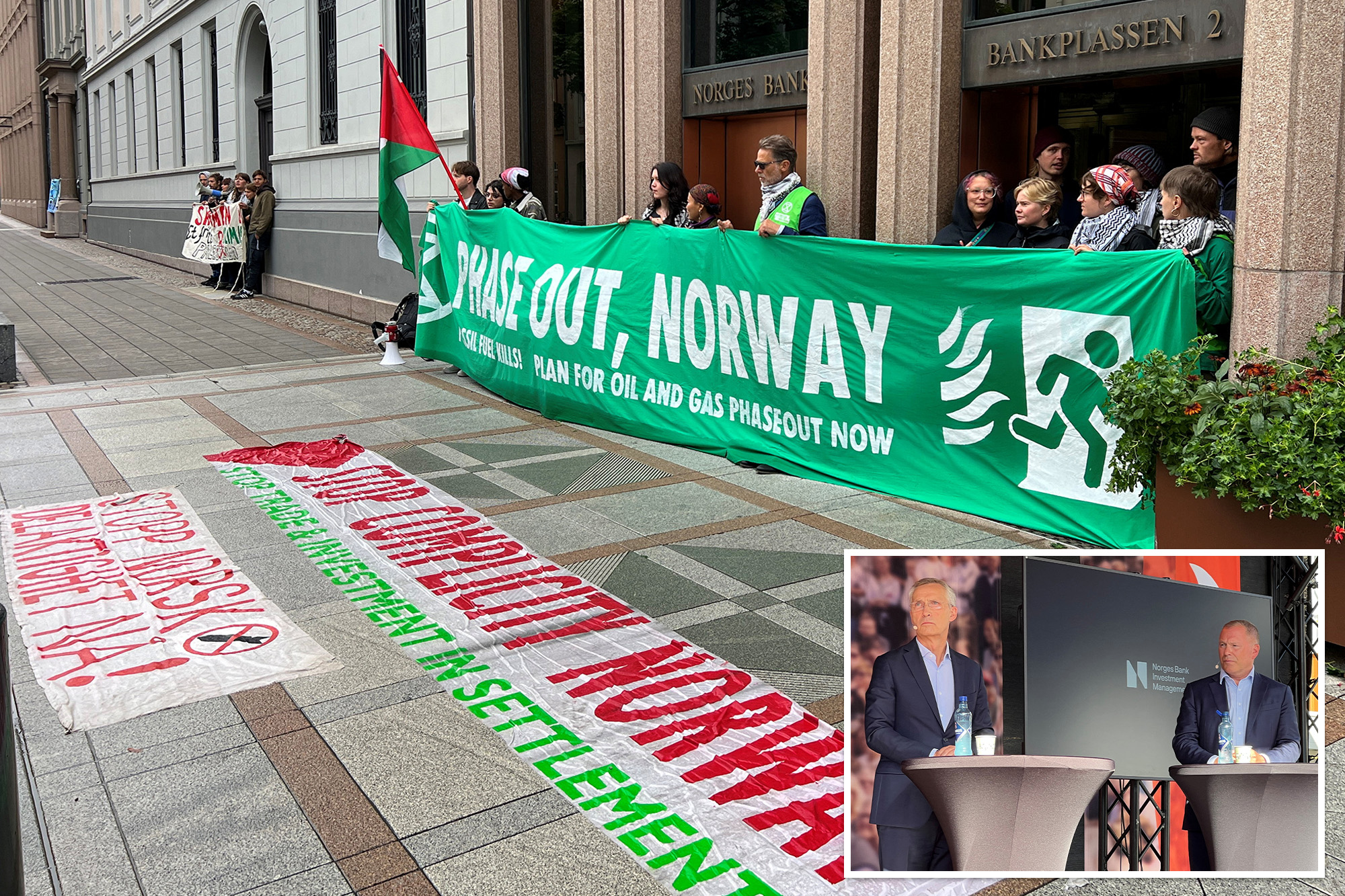Investments in Israel have emerged as a pivotal issue in Norway’s election campaign, stirring a significant debate over the operations of the world’s largest sovereign wealth fund. This controversy could influence the outcome of the parliamentary elections scheduled for September 8, 2023, as the race remains highly competitive.
Current polling indicates that right-wing parties, including the Conservatives, Progress Party, Liberals, and Christian Democrats, are projected to secure 85 seats—just one more than the threshold needed for a parliamentary majority. This development intensifies pressure on the incumbent Labour Party, particularly from the left-wing Socialist Left, which has stated it will only support a future Labour government if it divests from all companies linked to what it describes as “Israel’s illegal warfare in Gaza.” The Labour Party has rejected this ultimatum, although it may face increased demands post-election.
The Wealth Fund’s Challenges
Nicolai Tangen, CEO of the fund, characterized the situation as his “worst ever crisis,” expressing concerns about trust in the fund’s management. In a recent interview, he affirmed that he would not resign, stating he has adhered to the fund’s mandate as prescribed by parliament.
Since the end of June, the fund has divested from 23 Israeli companies following revelations that it had invested in a jet engine company servicing Israeli fighter jets. Prior to this, only two Israeli companies had been divested. As of August 14, the fund held interests in 38 companies valued at approximately 19 billion crowns ($1.85 billion), spanning various sectors, including banking, technology, consumer goods, and industrials. Further divestments are anticipated, according to Finance Minister Jens Stoltenberg.
Advocates for divesting from Israel argue that Norway contributes to violations of international law by maintaining investments in companies operating in occupied Palestinian territories. They criticize the fund’s formal divestment process, arguing that it is overly lengthy and lacks urgency. Conversely, supporters of maintaining the process caution against singling out specific nations, emphasizing the need for fairness.
Fund Operations Under Scrutiny
The fund plays a critical role in managing Norway’s oil and gas revenues, aimed at preventing overheating in the domestic economy. With a value of $2 trillion, it represents around $355,000 for every Norwegian citizen. Historically, the fund’s operations have been low-profile, but the ongoing situation has thrust it into the public eye.
Traditionally, Norway’s four largest political parties have collaborated to enact changes to the fund through a “supermajority,” thereby ensuring continuity regardless of government shifts. Mahmoud Farahmand, a lawmaker from the opposition Conservative Party, noted that increased visibility of the fund could enhance reputational risks due to the volume of companies in which it is invested.
Documents obtained by Reuters revealed that fund officials are privately concerned about the potential misinterpretation of their ethical investment strategies as hostile government actions. Minutes from a December 6 meeting highlighted discussions between Norges Bank Investment Management (NBIM), the Council on Ethics, and the finance ministry regarding the delicate balance of ethical investment without politicizing the fund.
Finance Minister Stoltenberg has faced significant public criticism for his handling of the inquiries from the Standing Committee on Scrutiny and Constitutional Affairs. The committee’s head, opposition lawmaker Peter Froelich, described Stoltenberg’s responses as “the most arrogant I have read in four years.” He lamented the minister’s tendency to deliver lectures instead of factual answers to relevant questions.
The fund adheres to ethical guidelines established in 2004 under Conservative finance minister Per-Kristian Foss, which prohibit investments in companies implicated in severe human rights violations during conflicts. Kristin Halvorsen, Foss’s successor, emphasized that public support for the fund hinges on adherence to these ethical standards.
Erna Solberg, leader of the Conservative Party and former Prime Minister, reiterated the importance of political impartiality in the fund’s investment strategy. She stated that maintaining this principle has long been a priority for the country.
During a recent town hall meeting in Arendal, Finance Minister Stoltenberg acknowledged the challenges the fund has faced historically and will continue to encounter. “We have managed, for 30 years, to do something that no other country has been able to achieve: take the revenues from our natural resources, save all the money, and only use the financial return,” he asserted.
The ongoing debate around Israel investments is shaping the political landscape in Norway as the country approaches a critical election. With party positions becoming increasingly polarized on this issue, the implications for the future governance of Norway remain to be seen.
